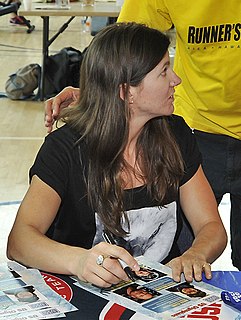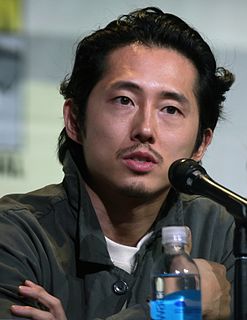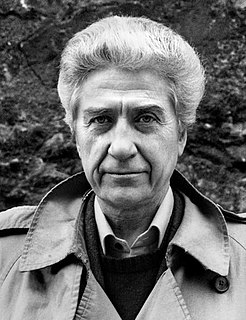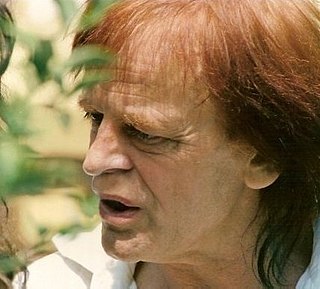A Quote by Mitchell Hurwitz
I joked recently that I thought 30 seconds a day for three years would be the best way to enjoy it, and I'm going to stand by that statement.
Related Quotes
The thing is, people only care about their selfie. I am a fan of artists, and if I have 30 seconds with an artist, I am not going to take a photo just to prove on social media that I was with the artist. I am going to enjoy every single second of those 30 seconds, ask questions, talk, actually make something of the moment, thank them.
I never planned to be at the height of my career when I was 30 years old and going to my fourth Olympics. I watched the 1998 Olympics when I was 14 years old. That's what I wanted to do with my life. I thought I might have a shot at three Olympics max. This is way beyond the parameters of what I set out to do.
There is a discrepancy of somebody going to an art dealer and promising what they'll make for the next three years. And I'm old fashioned that way; I think that every exhibition you make is supposed to put you in the world, that the next exhibition is spinning off of that. It's almost like a riff. And if you know what you're going to do for the next three years, why don't just do it the final point? You would think, in a progressive situation, that the final would be the best.
If the estimated age of the cosmos were shortened to seventy-two years, a human life would take about ten seconds. But look at time the other way. Each day is a minor eternity of over 86,000 seconds. During each second, the number of distinct molecular functions going on within the human body is comparable to the number of seconds in the estimated age of the cosmos. A few seconds are long enough for a revolutionary idea, a startling communication, a baby's conception, a wounding insult, a sudden death. Depending on how we think of them, our lives can be infinitely long or infinitely short.
You can say that all you want, but even in the little time that I've been in this industry, I've learned that it isn't exactly what you expect, so you've got to have a level head. I thought people would dig it. I thought people would enjoy it. It's AMC. I thought people would be fans. But, I did not think we would be the best new show on television.
We worked on The Perfect Storm, and I'll never forget, Wolfgang Petersen would talk about a moment. Like a non-speaking moment, where we'd all be sitting around eating dinner, and it would probably last maybe four seconds on screen. But he would sit there and talk about it for about 10 minutes. He knew what piece of the puzzle that scene would be, and if it were six seconds, it would be too long. If it were three seconds, it wouldn't be enough. I'm always turned on with people's enthusiasm like that.






































